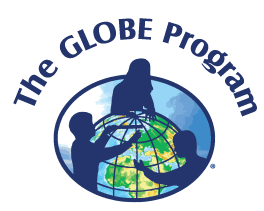 On May 13, 2021, the Midwest GLOBE (Global Learning and Observations to Benefit the Environment) / ESS (Earth System Science) Collaborative hosted the GLOBE Midwest ESS virtual Science Symposium, with 25 student groups from 11 different schools across the Midwest. The program was established in 2020 with the vision of expanding and strengthening interactions among citizens, schools, and school districts in the Midwest and is an extension of GLOBE, the NASA/NSF/NOAA-supported citizen science environmental education program with a 25-year history of encouraging K-12 students to participate in nature-based, active learning to study the coupled Earth System.
On May 13, 2021, the Midwest GLOBE (Global Learning and Observations to Benefit the Environment) / ESS (Earth System Science) Collaborative hosted the GLOBE Midwest ESS virtual Science Symposium, with 25 student groups from 11 different schools across the Midwest. The program was established in 2020 with the vision of expanding and strengthening interactions among citizens, schools, and school districts in the Midwest and is an extension of GLOBE, the NASA/NSF/NOAA-supported citizen science environmental education program with a 25-year history of encouraging K-12 students to participate in nature-based, active learning to study the coupled Earth System.
Led by co-directors Michael Notaro and Rose Pertzborn from the Nelson Institute Center for Climatic Research, Janet Struble and Kevin Czajkowski from the University of Toledo, and David Bydlowski from Wayne RESA, the Midwest Collaborative aims to provide opportunities for team-based, student-led scientific research projects and collaborative events, provide a regional focus that fosters multi-school and locale interactions, increase the number and participation of GLOBE schools, teachers, citizens, and partnerships, and increase the input of quality GLOBE data.
The topics shared during the GLOBE Midwest ESS virtual Science Symposium were extremely diverse, with such titles as “What GLOBE means to me,” “Pedosphere data and CHEESEHEAD,” “What water will produce the healthiest raphanus sativus (radish) plants: bottled, tap, or snow melt?,” and “Is there a difference in urban river water quality between Michigan and Ohio rivers?” The presentation, “Pedosphere data and CHEESEHEAD,” was delivered by two students in Butternut School in Wisconsin, with teacher Laurie Fox collaborating with Nelson Institute’s Ankur Desai, Michael Notaro, and Rose Pertzborn on both Desai’s NSF-supported CHEESEHEAD grant and Notaro’s Baldwin Wisconsin Idea grant.
We invite you to view video presentations from the event.